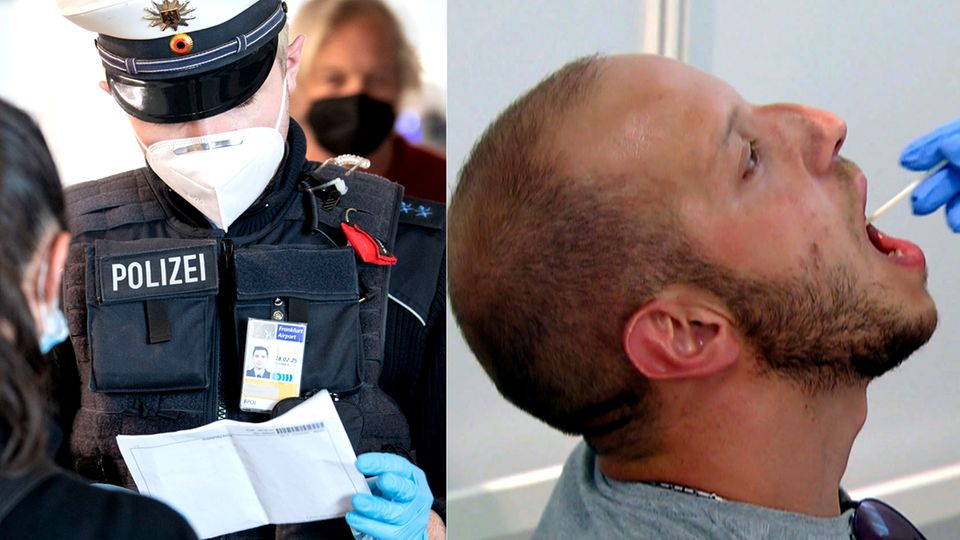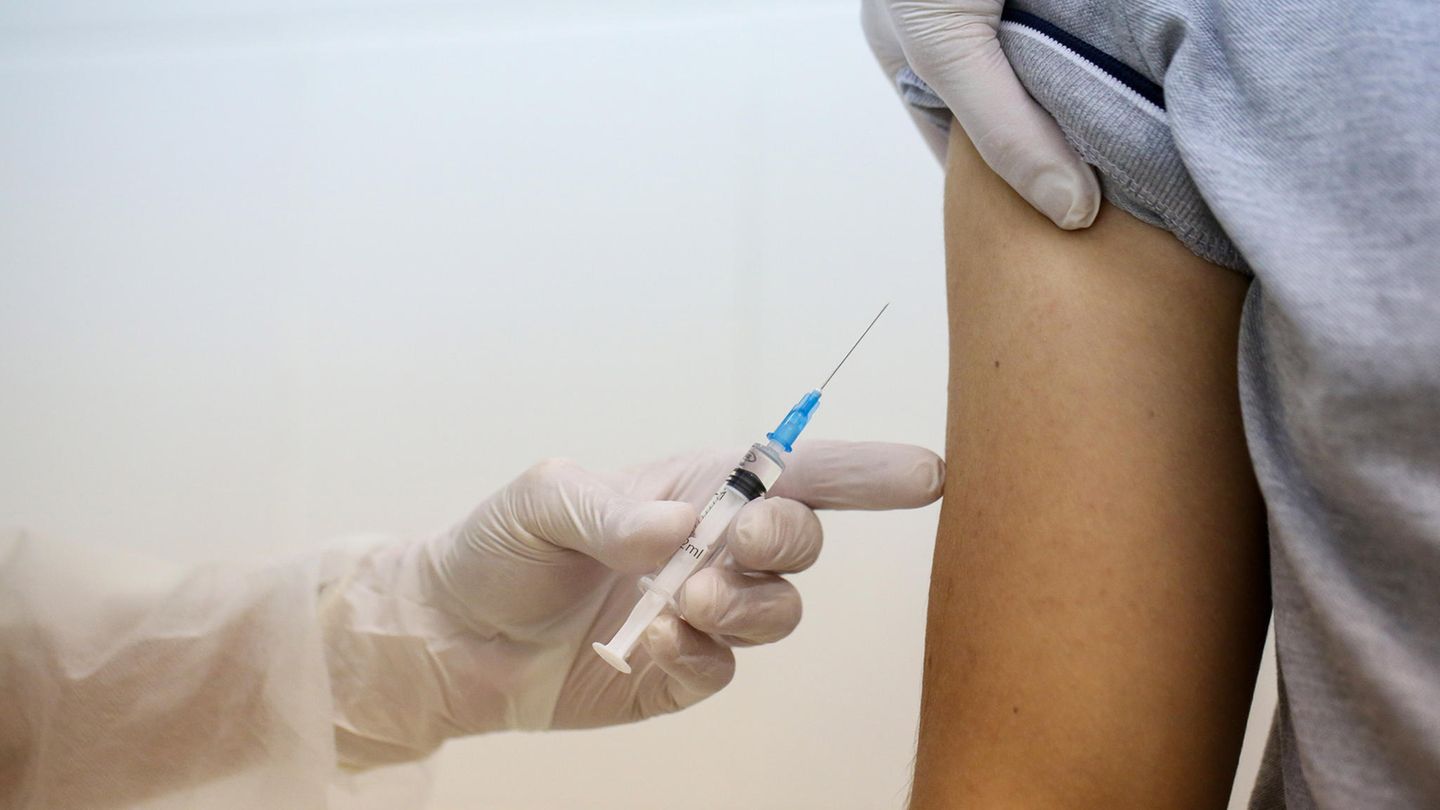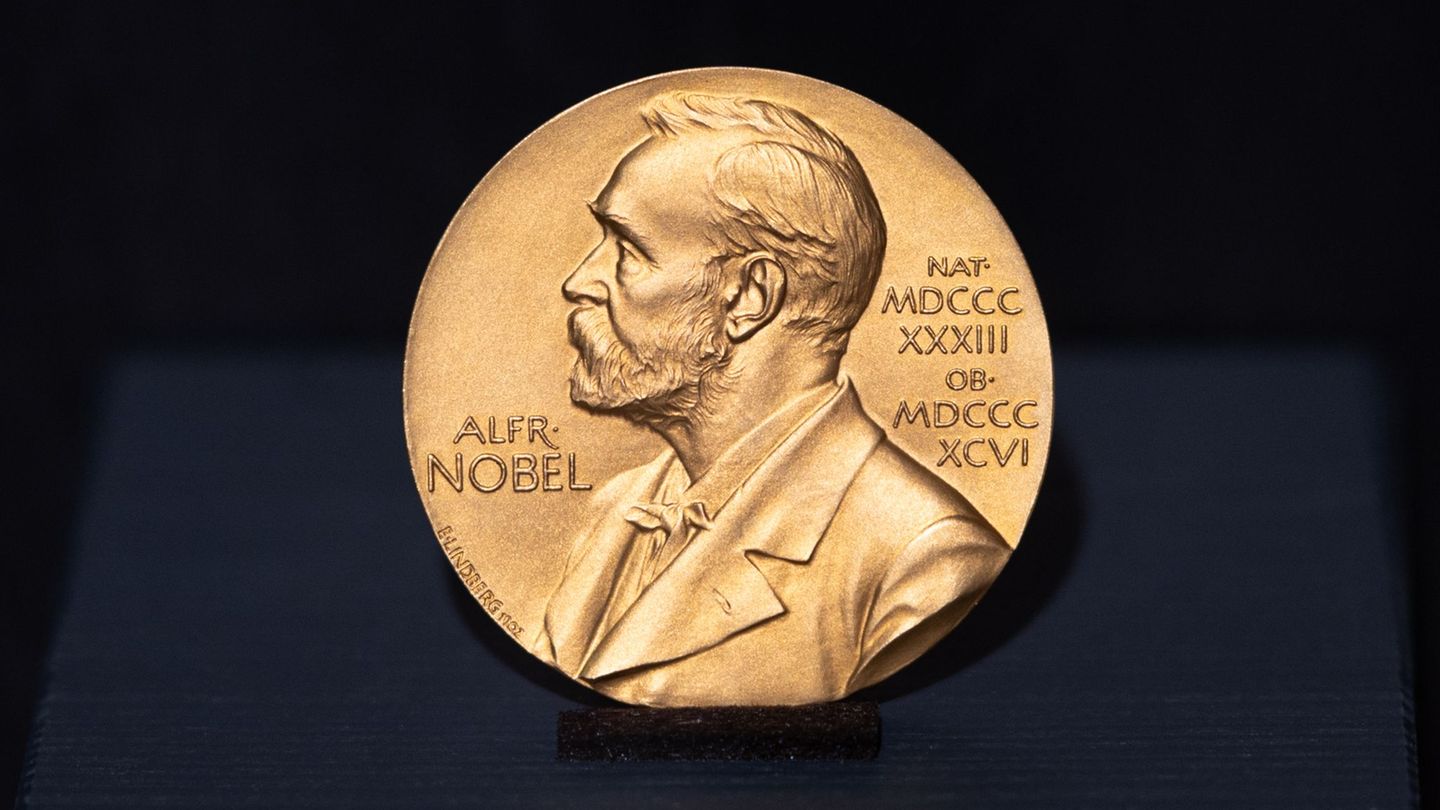Vaccination against the coronavirus is considered to be the most powerful tool to end the pandemic. But how long does the protection last? A new US study now gives the mRNA vaccines good marks. Booster vaccinations are not off the table.
How long does a vaccination against the coronavirus protect – weeks, months, years? A US research team has investigated this question, and the results of the study have now been published in the renowned journal “Nature”. Accordingly, the results suggest that the majority of people who have been vaccinated with an mRNA vaccine benefit from long-term immune protection that could last for years. Booster vaccinations might then not even be necessary for many. Vocabulary like “could” and “possibly” is not a coincidence.
The study enrolled 41 people who were fully vaccinated with the Biontech / Pfizer mRNA vaccine. Eight of them had already had a corona infection. The team took samples from the lymph nodes of 14 people several times within 15 weeks after the initial vaccination. There the memory cells are “trained” in the so-called germination center to identify the coronavirus and to fight it. The research team found that this germination center still worked well for all 14 test subjects 15 weeks after the first vaccination, and that the number of memory cells had not decreased. “The fact that the reactions persisted for almost four months after vaccination is a very, very good sign,” said immunologist and study director Ali Ellebedy of the New York Times.
Booster vaccination not off the table
But when it comes to permanent immunity, many factors play a role. The results presented by the scientists relate exclusively to mRNA vaccines and the current corona variants. According to the study, people who have had a corona infection and are also vaccinated probably do not need a booster vaccination. Elderly people, people with weak immune systems or those who take drugs that weaken the immune system may need a booster vaccination.
The good news is that such a vaccination will likely have the same effect as a previous viral infection, Ellebedy said. The third vaccination is even “probably better” than a previous infection. Evidence from previous studies suggested that the memory cells produced after vaccination were more diverse. This in turn could mean that these cells are better equipped against variants than those that arise from natural immunity. Such booster vaccinations, possibly even annually similar to the flu vaccination, have been an option for some time.
One of the elementary influencing factors on immune protection remains the mutability of the virus. The concern is that at some point the virus will change in such a way that it can bypass immunity and thus also undermine vaccination protection. Then the probably good immune protection against the current Corona variants would no longer be of any use. In addition to the wild type, various mutants have long since been in circulation, but the dreaded case has not yet materialized. The biggest problem child currently: the delta variant, which is already prevalent in Great Britain and is also spreading in Germany. If an adaptation of the vaccine becomes necessary, this would be possible in six weeks for mRNA vaccines, according to the manufacturers. At least the manufacturer Biontech / Pfizer currently sees no need to change the vaccine.
Adaptation of the vaccine
The vector vaccine manufacturer Astrazeneca has already made an adjustment to its vaccine. Together with Oxford University, the company has now started new studies on the effectiveness of the modified vaccine against the beta variant of the coronavirus. It is important to prepare for changes in the coronavirus and thus “be one step ahead of the pandemic,” said Oxford Vaccine Group director Andrew Pollar on Sunday.
Around 2250 participants from Great Britain, South Africa, Brazil and Poland are to take part in the clinical studies of phases II and III with the slightly modified booster vaccine. The first data are expected this year. Independently of this, two vaccinations with the original Astrazeneca vaccine also seem to offer a longer period of protection according to the current state of the art, as researchers recently discovered in a study. They also found that a booster vaccination also generates a high immune response.

In May, the British government began clinical studies on the effectiveness of a booster with existing Covid vaccines for the first time. And in the US, too, the US National Institute of Allergy and Infectious Diseases (NIAID) is conducting a study to determine whether it is necessary to boost all currently approved vaccinations with another dose of Moderna’s vaccine.
In the meantime, experts are also considering the need for a second vaccine dose with an mRNA vaccine for everyone who has been vaccinated with the Johnson & Johnson vaccine in the USA, according to Reuters news agency, with regard to the spreading delta variant. There is no doubt that people who receive the J&J vaccine are less protected against disease than those who receive two doses of the other vaccinations, said Stanford professor Dr. Michael Lin. Well-founded data on how well the vaccine protects against the variant is still lacking.




